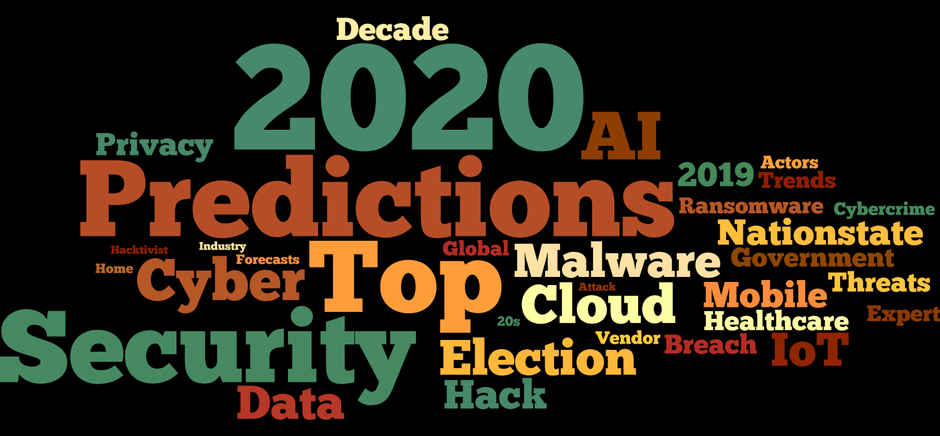
There is a wave of new and futuristic financial services technology trends that are hitting the market in 2020. This will have a direct impact on the growth of financial businesses. This said growth will be centred on the ability of organizations to successfully mould the sharing economy and customer intelligence this year, while at the same time deal with the expected advances in technologies, which include blockchain, robotics, Artificial Intelligence (AI), and many more.
The last decade especially has seen the large amount of impact that technology has had on financial services. All businesses have felt the need to let go of their preconceived and pre-existing traditional financial practices and instead, move on to and follow agile, innovative methods to keep themselves relevant and at the same time stay ahead of their competitors.
This year onwards, companies will see massive transformational changes in the way various technologies impact the functioning of businesses. There will be a rise in technology-led innovation when it comes to products and services as businesses will leverage FinTech, which is Financial Technologies so that they can create newer and more efficient business models. This has become obvious after observing the consistent growth of the FinTech market. According to research, the financial technology market was valued at $127.66 billion in 2018 and will soon reach $309.98 billion by the year 2022. There was another report stating that the FinTech adoption rate worldwide has noticed the growth by nearly 64% in the year 2019 alone.
Top Emerging Technologies in the Financial Services Industry in 2020
The following mentioned below are the most highly predicted financial services technology trends that are supposed to rise in 2020. These trends will help businesses effectively manage all the existing as well as future issues. The given emerging trends in financial services will be of great assistance in the banking sector as well as the insurance and other financial industries that exist today. It will help in implementing security as well as improve accessibility and deliver convenience. Most importantly, these trends will help in building trust.
Cognitive Technology
Artificial Intelligence consists of multifarious aspects of the financial service industry and the business involved. It is of great use in this industry. AI comes with extremely effective and high-computing and cognitive abilities. The technology also helps financial businesses in risk management, detection of frauds as well as the identification of data patterns. These patterns enable businesses to make better business decisions with lesser human interaction or intervention.
Along with these benefits, artificial intelligence is also of big help when it comes to helping consumers with the customization of their financial products and services. This along with performing budget analysis as well as obtaining saving advice, and the realization and execution of the best of digital payment and mobile banking experiences.

Conversational Chatbots
Chatbots started out as a convenient alternative and have been in existence for decades now. They have lost their charm a few years ago due to their inability to create human-like experiences and conversations.
In today’s age, however, with great advances in technology, chatbots have now become intelligent because they are AI-powered. These have led to a rise in popularity for these conversational chatbots. In the future, Gartner has predicted that AI-backed Chatbots, by the end of the year 2020, will successfully handle nearly 85% of the total business-customer interactions.
This means that all the existing and upcoming financial services providers will be able to use conversational AI solutions in their business so that they can successfully deliver humanized experiences and conversations to their customers. AI-powered chatbots use the existing database to learn and grow along with the already ongoing interactions that they have so they can deliver bespoke answers to all their customer queries as well as provide relevant suggestions to the customers and perform wildly beyond expectations.
Blockchain
In today’s world of sharing economy, blockchain is, without a doubt going to act like the spine. Blockchain is one of the most prominent and widely used technologies which even after all this time, still manages to instil security and accountability in the industry it is predominantly used in, which is the product and service delivery landscape.
The blockchain technology scrutinizes all the transactions in such a way that it is a cost-effective, decentralized, and verified method for the organizations. This way companies become less dependent and they can support proper book-keeping. It is considered that blockchain could be the technology that will underpin the most important pillars in the financial services technologies industry in today’s day and age, which is transparency and trust.
Data Analytics
Banking and financial services businesses require data, which essentially plays an elementary role. When this data is combined with and mapped alongside other technologies such as data analytics, it is guaranteed that it will deliver business value.
With the help of data analytics, users can enable businesses to successfully as well as efficiently process enterprise-wide data. This will help them gain actionable business insights. This in turn, will end up improving their decision-making processes as well as the product development, and then risk management, and also have a big impact on fraud detection, and more.
The data analytics technology also helps financial businesses to revisit and look at their past performances, as well as optimize all the current and ongoing tasks, processes, and also optimize all their functions, and finally, get a glimpse into the future. Soon, in the near future, more and more institutions in the finance industry will end up with the expectations of leveraging their data analytics so that they can capture, control, as well as regulate all the incoming data so that they can build efficient, smarter enterprises and create an entirely new world of opportunities.
Automation
When people say the word automation or talk about it, what comes to mind is efficiency, speed, as well as precision. If the number of research reports conducted is to be believed, there are numerous technologies such as robotic process automation (RPA) will prove to be of great help to financial businesses save the company costs up to nearly 25-30%.
Automation is the type of technology that helps financial services providers automate all their tasks that are considered to be repetitive and data-intensive. This financial service technology will help organizations to follow a software-based approach. This will lead to improving all the existing process accuracy and as well as make the task execution process more effective. RPA will mainly be put to use to help companies reduce dependency on humans and also the latency and to increase productivity across all the finance verticals in the company.
Cloud Computing
Now we have all reached an age, especially for financial services providers, where mobile banking is in high demand. A lot of interactions with the financial services are done online such as insurance policies and also all the existing tech-savvy customers are extremely fond of digital wallets.
Nowadays, companies use cloud computing technology to help their financial businesses optimize their processes and achieve their business goals seamlessly. The digital-backed sharing economy in this decade is constantly active, it never sleeps. This means that customers are also active all the time. They are provided with smart devices at their disposal, which means they will want to communicate and transact throughout the day across the span of the year. This way, cloud computing supports total mobility for their users in the truest sense of the word. This, in turn, helps keep up with the digital-born customers’ constantly increasing pace.
When it comes to cloud computing, financial businesses come with a lot of expectations. This is because cloud computing seamlessly stores all the data and also enables instant access to this data for all the users in the business. Cloud computing also provides the on-demand availability option for all the computer resources that are in use in the building. All of this is done without the requirement of direct management by the users.
Cybersecurity
Digital-age comes with its own challenges on a daily basis. There are a lot of financial institutions that have to deal with personal and financial data of their database and customers, and this data is sensitive.
But the unfortunate thing is that this data is the one that is the most vulnerable asset when it comes to being a part of a connected ecosystem. Financial services providers are making investments in the access delegation framework department such as OAuth2.0 (Open-standard Authorization). This way the institutions and the servers are protected from third-party attacks. This also provides assistance with building robust APIs (Application Programming Interfaces).
Cybersecurity technologies and frameworks are responsible for helping keep the data secure as well as maintain businesses compliance with all existing finance regulatory standards.
Importance of Technology in Finance Institutions
Banking and online transaction
Banking and online transactions have begun to rely heavily on technology in this digital age. These are critical and sensitive transactions which require utmost accuracy, something that is not possible with a manual process due to the sheer number of transactions that take place on a day to day basis
Security in the financial sector
The data in the financial sector is extremely sensitive as well. There is a lot of personal information about the customers which cannot, in any case, get leaked. All the information needs to be secured in totality. The information can include the data available as well as the mode of the transaction as well as all the processes involved.
This sensitive data needs the highest level of security which can come with complex software and firewalls. This way all the processes are seamless and they remain completely free from any and all external interferences. Technological advancements give organizations the competitive edge they need with their services. This way there is a legitimate and robust system always in place.
Essential for global outreach
Everybody uses the internet to gain access to information about the market at all times. They can easily observe and record any and all fluctuations in a particular market area in any part of the world. This can be used to cushion the financial sector in any other region.
This has become possible now due to the complex database and network system that exists today which then interlinks all the different parts of the world in a cohesive manner. This is an extremely crucial step for the creation of checks and balances existing in the global market, which eventually and ultimately leads to ensuring that there is relative stability maintained in the financial sector.
Enhancing social media marketing
Social media is gaining importance across all the industries and it is something that cannot be ignored in the current financial sector either. By using social media, it becomes possible to open a whole new world of opportunities across all different financial institutions around the world.
It enables direct contact between institutions as well as prospective clients to achieve significant growth in a short amount of time. Social media also drastically cuts down the cost of marketing and achieve the same amount of market volume. Businesses can also use the trends existing in social media to help with lead generation and then predict behavioural change going on in the market.
Financial risk management
The market has a composite in nature, making risk management a really complex process in the financial sector. This is why it becomes very difficult for analysts and members of the sector to make informed decisions. These decisions will ensure the safety of the business, which will be done by using operating systems to analyze data accurately and make smart decisions to sustain the business in case of any fluctuations.
Technologies Will Be At the Core of Financial Services Systems
The upcoming technologies of 2020 in the financial services industry have already managed to create an impact on all the business aspects in the past decade. Customers are offered personalization with products and services and the servers are now more secure than ever. These trends are becoming the core of the industry which means companies need to get on board and enhance their consumer intelligence capability.







